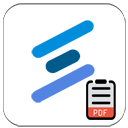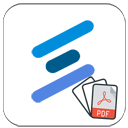Unlocking Words That Power Learning Across Every Subject
Words are powerful tools — they help us understand the world, solve problems, and communicate ideas. In school, certain words appear again and again across subjects like math, science, social studies, and language arts. These are called academic vocabulary words, and mastering them gives elementary students a huge advantage in learning.
What is Academic Vocabulary?
Academic vocabulary refers to words that are not just subject-specific, but are also used across many academic settings. These words might show up in reading comprehension questions, math word problems, science experiments, or history discussions.
Examples include:
Analyze
Describe
Compare
Predict
Evaluate
These aren’t everyday conversation words, but they appear everywhere in classrooms, textbooks, and tests.
❓ Did You Know?
Students who know more academic vocabulary score significantly higher on standardized tests — across all subjects.
That’s because they understand the question, not just the answer!
Why is Academic Vocabulary Important?
Imagine a student reading a science question that says:
“Compare the results of the two experiments.”
If the student doesn’t understand what compare means, they can’t even start to answer — even if they know the science!
That’s why learning these words boosts:
Reading comprehension
Test performance
Class participation
Confidence
How to Study Academic Vocabulary
Here are some effective, kid-friendly strategies:
1. Use a Word Journal
Write down new words, draw pictures, use them in a sentence, and define them in your own words.
2. Make It a Game
Turn vocabulary into a matching game, memory challenge, or charades!
3. Connect to Real Life
Use words in daily conversations: “Can you compare the two cereals?” or “Let’s analyze this recipe.”
4. Practice with Flashcards
Apps like Quizlet or old-fashioned index cards work great. Try adding visuals or emojis!
5. Teach Someone Else
Explaining a word helps you remember it better than just memorizing.
💡 Tips for Parents and Teachers
Use the words naturally when talking about homework.
Post a “word of the week” on the fridge or classroom wall.
Encourage students to ask, “What does that word mean?” whenever they’re unsure.
Include these words in writing prompts and class discussions.
Sample Academic Vocabulary Spelling List (Grades 3–5)
Here are 40 cross-subject academic words that students should learn to recognize, spell, and use:
🏆 Performance-Boosting Study Habits
Short daily sessions are better than long cramming.
Use multi-sensory methods — say it, write it, hear it, act it out.
Use spaced repetition — review words over time, not just once.
Combine words with subject-specific learning (e.g., math vocab during math homework).
Encourage kids to use the words in writing assignments and classroom conversations.
Exercise
Read the paragraph below carefully. As you read, underline any words you don’t know. Then, check the meanings by clicking the underlined words in the vocabulary table provided above.
Paragraph
In science class, we learn how to observe the world around us and classify different types of matter. Matter is anything that has mass and takes up space. Scientists use tools to measure the volume and temperature of objects to understand their properties. When we conduct an experiment, we start with a hypothesis, which is a guess that we can test. After gathering data, we analyze the information to see if our hypothesis is correct. This process helps us understand the cause and effect in nature, such as how gravity causes objects to fall to the ground.
In social studies, we study communities and how people work together. Governments create laws to keep order, and citizens have the right to vote for leaders. Learning about different cultures helps us understand the world better. A timeline shows important events in history and helps us see how things have changed over time.
In math, we use fractions, digits, and place value to solve problems. We learn to calculate the area and perimeter of shapes and recognize patterns in numbers. Understanding these concepts helps us in everyday life, like when we estimate how much something will cost or measure ingredients in a recipe.
PDF, Flashcards and SBN formats
As usual, for every word list we offer the PDF format, flashcards and the link to the list inside our spelling bee training app.
✨ Bonus: Fun “Did You Know?” Facts
📖 The word “analyze” comes from Greek and means “to break up or loosen.”
🧪 “Hypothesis” comes from science, but it’s used in reading too! Writers make hypotheses about characters.
🌍 “Culture” is both a social studies word and a science term (think bacteria!).
🧮 “Estimate” is used in both math and reading — like estimating how much time a book will take to read.
📈 From Words to Success
Learning academic vocabulary helps students:
Understand instructions
Excel in standardized tests
Improve writing
Engage confidently in class
The earlier students master these words, the smoother their academic journey will be — not just in elementary school, but all the way through high school and beyond.
Wrap-Up
Learning academic vocabulary is like packing your backpack with powerful tools. You don’t just memorize — you explore, play, use, and grow. With the right strategies and consistent practice, these words become second nature and unlock doors to deeper understanding across every subject.





